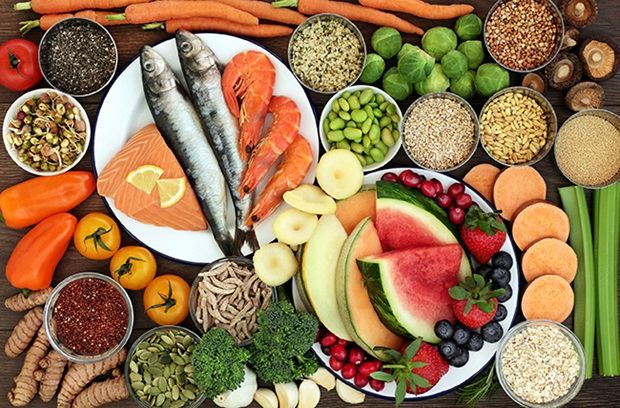The so-called Mediterranean diet, rich in fruit and veg, nuts and wine has been advocated for many decades as one of the healthiest that you can follow, with advocates pointing to the length and quality of life of Mediterranean peoples, especially Italians, as living proof of its beneficial effects.
But now a new study is showing that the Mediterranean diet has a hidden downside that could be putting adherents at serious risk: increased pesticide exposure.
The study, from Australia’s Southern Cross University, shows that a Mediterranean diet can lead to three times the intake of pesticides as following a diet including processed food, red meat, sugar and high-fat dairy.
Mediterranean diet: increased pesticide exposure

The study, which was led by SCU’s Director of the Centre for Organics Research, Professor Carlo Leifert, showed both diet and the way food was produced could impact health.
The study was carried out in Crete, and involved 26 students eating exactly the same meals, split only by whether the produce was produced organically or by conventional farming methods.
Switching from a Western to a Mediterranean diet, with high fruit and vegetable consumption, resulted in more than three-times higher total insecticide and organophosphate intake.
Furthermore, consuming a Mediterranean diet made from non-organic food resulted in people recording pesticide levels that were 10 times higher than those who eat a Mediterranean diet made entirely from organic food.
“We give them exactly the same Mediterranean dishes – one dish made organically, one dish made conventionally,” Leifert said.
“We then analyse their blood and urine for health-related indicators, and we can be sure that the differences are not from them following a different diet or making food slightly differently, because it is exactly the same.
“We are sure the difference is made by them having their food made from organic food compared to conventional food.”
“Many of the synthetic pesticides detected in both food and urine samples in this study are confirmed or suspected endocrine disrupting chemicals,” Leifert said.
Endocrine-disruptors are chemicals that mimic, block, or interfere with the body’s hormonal system. They have been associated with an array of health issues, including weight gain and fertility issues. One expert, Professor Shanna Swan, claims exposure to endocrine-disruptors could make the majority of men infertile by 2045.
The study identified non-organic fruit, vegetables and wholegrain cereals as the most significant dietary sources for synthetic chemical pesticides.
Common pesticide may be fueling the worldwide obesity crisis
A new study from McMaster University, in Canada, suggests that chlorpyrifos, a commonly used pesticide, may be responsible for obesity. Researchers observed that the pesticide causes the brown fat tissue of mice to burn calories at a reduced rate, promoting fat storage. Even small changes to the metabolic rate of this tissue can, in the long term, trigger significant weight gain.
Although chlorpyrifos is banned in Canada, where the study was carried out, it is widely used around the world to treat fruit and vegetable crops. According to its former manufacturer Dow (now part of Corteva after a merger), in 2014 chlorpyrifos was used in 100 countries around the world and sprayed on 8.5 million acres of crops.
Chlorpyrifos is already in the news due to a massive class-action lawsuit in the United States which alleges that the pesticide caused brain damage to children in a heavily sprayed area of California.
Click here to read more about this chemical and the nasty effects it could be having
Leifert said going organic could help people change to a Mediterranean-style diet, without risking increased intake of pesticides.
Co-researcher Professor Chris Seal from Newcastle University in the UK said the study was the first to clearly show that a healthy diet should consider the way food was produced.
“This study provides clear evidence that both our diet and the way we produce food may affect the level of exposure to synthetic chemical pesticides and ultimately our health,” Seal said.
Dr Leonidas Rempelos (PhD), project manager of the study in Crete, said: “One of the difficulties of assessing the public health impacts of dietary exposure to pesticides is that once pesticides are widely used in food production everybody gets exposed. This study demonstrated the potential of using organic food consumers as a ‘low pesticide exposure control group’ to investigate the effect of currently used and newly released pesticides on public health.”

Don’t hesitate to email us at [email protected] for personalized coaching and a client questionnaire if you’d like DEDICATED tailor-made personal training on strength training, building muscle, losing fat, developing athleticism, and more — all to your liking, lifestyle, habits, and taste!
Otherwise, don’t forget to claim your FREE eBook detailing how to lose 20lb of fat while building muscle in 12 weeks! You can claim it here.
Alternatively, you can pick up a FREE eBook on fundamental strength principles offering an introductory workout program.











